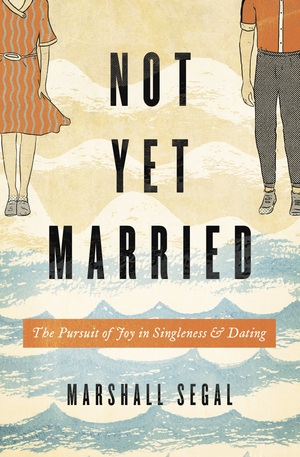Does Dating Prepare Us for Marriage — or Divorce?

The common trends in dating today are more likely to prepare you to get divorced than to enjoy and persevere in marriage.
Dating is an intentional pursuit of marriage, not casual preparation for it. Unfortunately, many of us are being told we must date early and often if we ever want to be ready for marriage. For instance, one popular Christian dating book reads, “Dating is an incubator time of discovering the opposite sex, one’s own sexual feelings, moral limits, one’s need for relationship skills, and one’s tastes for people.” Sounds practical and reasonable on the surface. Until you think about putting yourself (or your daughter) into someone else’s “incubator” for a few months, or years, while he or she tries out their “sexual feelings” and “moral limits.” We put too much of ourselves at risk in dating to donate our hearts to someone’s romantic experiment.
The truth is we have given dating far too much credit, and far too much power in our pursuit of marriage. And because we misunderstand and misuse dating, we end up making more and greater mistakes in our search for love.
Wait to Date?
Wait to date until you can marry. That’s my advice for the not-yet-married, reflecting on my personal experience (and failures) in dating and on years of walking with others falling in love (and often falling harder out of love). In short, if we are dating in order to marry, we need to be ready to marry before we begin dating.
“The trends in dating today are more likely to prepare you to get divorced than to enjoy and persevere in marriage.”
I definitely do not expect everyone to agree with me. Godly wisdom is a wide stream, and God’s word often allows us to apply his heart and wisdom in remarkably different ways, even in dating. But one common point of pushback puzzled me. It came in many forms, but it goes something like this:
Dating is indispensable preparation for marriage. How else will young men and women learn how to love their future husband or wife without dating?
I say it puzzles me even though I’m sure I could have preached that verse as a teenager to anyone who would have listened. I bought the message in middle school: If dating is a critical education in relationships and romance, and we want to be married, then we should date early and often. So, I started paying tuition, registered for classes, purchased the textbooks, jumped into relationship after relationship, and never looked back — until I wanted my money back.
My problem was that I subtly treated each new relationship — each potentialmarriage — like a mini-marriage.
Lab Rats in Love
Dating is not eighth-grade marriage. The men or women we date are not a series of lab experiments that prepare us to be a better husband or wife. The relationships are real relationships, and the people are (most likely) someone else’s future husband or wife. A dating relationship is not a marriage covenant, but the spiritual and emotional stakes are still high. If we are honest with ourselves, we will admit that the liberties many of us take in dating are more likely to harm our future marriage (and our significant other’s future marriage) than they are to prepare us for marriage. We cultivate the “mini-marriages” that subtly undermine any real marriage God might eventually give us.
Again, dating is primarily pursuit, not preparation. Dating well is not mainly looking for how, but for who. Like other experiences in life, dating will prepare and mature us in one way or another, but we don’t date in order to prepare ourselves for someone else. God prepares us for marriage in a thousand other ways that are not spring-loaded with the risks, obstacles, and difficulties of dating.
“Dating is primarily pursuit, not preparation. Dating well is not mainly about looking for how, but for who.”
For example, far better than experimenting with romance and intimacy for ourselves would be to spend lots of time with marriages we respect and admire. Instead of “studying” for marriage by only giving ourselves away to other lovesick single people, we give ourselves to observing real-life, faithful, and happy husbands and wives. Instead of making out in the basement or watching more chick flicks, we could find creative ways to help families we want to learn from.
I am not saying you should not date. The vast majority of us will have to date in order to get married, at least in the West. It’s simply how most people find a spouse today. I’m just not convinced dating is necessarily preparing us — heart, habits, character — for marriage. I’m not discouraging you from dating, but encouraging you to date with clarity and purpose, and not as an experiment. My advice is not necessarily to marry the first person you date, but to date in a way that serves the person you marry one day.
How Dating Prepares Us
If dating did prepare us for marriage, what specifically would those relationships prepare us to do in marriage?
- To relate romantically to someone of the opposite sex?
- To plan better dates — food, places, activities?
- To express affection effectively?
- To buy the right kind of flowers, or candy, or jewelry?
- To carry on meaningful conversations?
Dating indeed may prepare us to do each of these things incrementally better than if we had never dated. Experience almost always teaches us something. The problem is that at the end of each relationship, we have learned how to love someone, but that someone wasn’t our spouse. We prepared ourselves to marry our ex-girlfriend or boyfriend, and then we never got married. We cultivated love emotionally and exclusively, learned specifically how to love each other practically, and then we walked away. And then started the whole process over with someone else.
So, instead of preparing ourselves for marriage, we actually prepared ourselves, practically speaking, to walk away from marriage. Dating really prepared us for divorce.
Something You Never Hear
Still don’t believe me? Have you ever heard a husband openly celebrate his wife’s past dating relationships? Have you ever heard a wife mourn that her husband didn’t date more people?
How would we communicate if you hadn’t spent all those hours on the phone with Rachel?
I’m so thankful you learned how to be a better kisser with Greg.
Where would our marriage be if you hadn’t bought all those flowers for Susan?
I’m so thankful you learned how to be a better kisser with Greg.
Where would our marriage be if you hadn’t bought all those flowers for Susan?
Husbands and wives do not talk that way. If a husband or wife does celebrate their spouse’s past relationships, it’s almost always because of what they didn’t do — not because that other relationship was a “valuable learning experience” on the way to marriage.
Think about that. We might talk freely about how much dating will prepare us for marriage before we are married, and then we almost never talk about our dating relationships after we’re married. Why? Because dating does not really prepare us for marriage, especially if we treat it like a trial run or a test drive.
How God Prepares Us
What does God say about what it looks like to be prepared for marriage, and how do those things map onto what we see and experience in dating today? The clearest picture we have in the Bible comes in Ephesians 5:22–33. If you want to prepare yourself for your future husband or wife, you need to learn how to practice these five graces in marriage:
- To be utterly and fiercely exclusive (Ephesians 5:31).
- To become one spiritually, emotionally, and physically (Ephesians 5:31).
- To submit our desires and preferences totally to someone else (Ephesians 5:21–24).
- To work hard for someone else’s purity (Ephesians 5:26–27).
- To die to ourselves for someone else, even if it costs us everything (Ephesians 5:25).
Does that sound like the dating scene we see today? Does that sound like your dating relationships? It does not sound, look, or smell like most of my dating experience. That’s mainly because Ephesians 5:22–33 was written about marriage, not about dating. We’re not meant to experience those five points with several men or women, and then more with our spouse. God meant for us to experience them with one person, within the safety and intimacy of a promise — within a marriage.
Prepare Yourself
By all means, if we want to be married, we should prepare ourselves to be married. But we don’t prepare ourselves for true, lifelong romance by experimenting with lesser, short-term romance. We prepare ourselves for deeper, fuller, longer-lasting romance by becoming more like Christ. If we want to be as happy as humanly possible in marriage, we practice loving others like he loves us. And the ways we prepare ourselves to love like him will look very different from every other trend in dating.
1. Prepare yourself to love exclusively.
When we say “exclusive” today, we typically mean one person at a time. We immediately think of our mini-marriages. For instance, someone could have been divorced five times and still be “exclusively” dating someone today. I think we can all agree that is a shallow and superficial way to think about exclusivity. Exclusively dating boy after boy, or girl after girl, looks less and less exclusive over time, and robs us of at least some of the exclusivity we might give a spouse one day.
“If we misunderstand and misuse dating, we will end up making more and greater mistakes in our search for love.”
Instead of treating each new relationship like a mini-marriage, cultivate a ferocious and truly exclusive love for your future husband or wife — even though you do not yet know who he or she is. As you relate to your boyfriend or girlfriend, always assume they are not your future husband or wife until he or she is your husband or wife.
2. Prepare yourself to serve others selflessly, and not satisfy yourself.
Prepare yourself to serve, and not be served (Mark 10:45). Marriage requires our gladly dying daily to ourselves for the sake of another, while dating more often looks like stuffing ourselves to death at someone else’s expense. We storm the free all-you-can-eat buffet, but forget someone else is always paying.
If we want to love our future spouse well one day, we must learn to live for someone other than ourselves now. We are all born knowing how to take care of ourselves (Ephesians 5:29). We all need to learn how to set ourselves aside for the sake of others — to postpone our own gratification in order to protect and serve our current boyfriend or girlfriend (as well as our future husband or wife).
3. Prepare yourself to wait patiently.
“Now” might be the defining word in modern dating — love now, titles now, touch now, sex now, marriage now. Every moment of unfulfilled desire pulses with tension in our bodies. Yes, “he who finds a wife finds a good thing and obtains favor from the Lord” (Proverbs 18:22), but only when he finds her in God’s time and in God’s way.
Impatience drives as many of our missteps in dating as anything else. Romance, marriage, and sex are really good gifts from God, and like every other good and perfect gift we receive, we have to submit to God’s timing and God’s terms to truly enjoy them. If you encourage your cravings for instant gratification in dating, you will be lost in the day-in, day-out, lifelong pursuit of marriage.
4. Prepare yourself to pursue purity fiercely.
The pursuit of purity does not stop when you get married. It’s not a saddle single people are forced to wear. It’s a burden blood-bought men and women love to bear (1 Corinthians 6:18–20).
“If we learn to treasure Jesus more than love, sex, and marriage, we will date, marry, and make love differently.”
The not-yet-married are told over and over again through Bible-pounding law and menacing scare tactics — shame, pregnancy, and STDs — to guard their purity. And the Bible does warn us, in no uncertain terms, about sexual immorality and impurity (Ephesians 5:3, 5). But the greatest and most effective motivation for your personal purity — single or married, young or old, new believer or veteran — is not potential consequences, but potential joy.
Prepare your heart to treasure Jesus more than love, sex, and marriage, and you will date, marry, and make love differently. And the differences will make all the difference for your happiness, and for your future husband or wife.


No comments:
Post a Comment